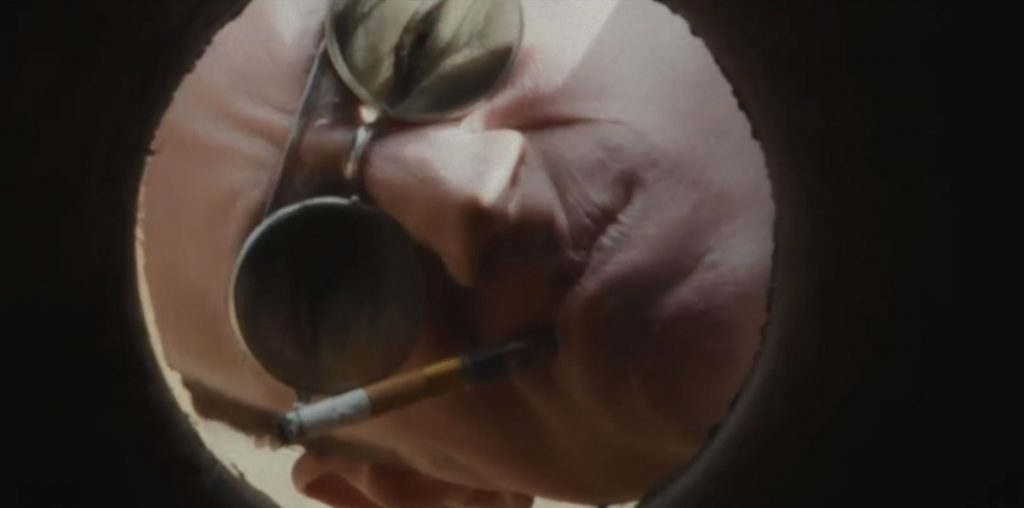
According to one man in L, “Honey is not in any category like fruit. It is just honey. And for this we must respect it.” Note that this is not the same man who bookends the film by singing odes to bears (being a bear, actually) and to the sea. Both a cappella performances are delivered straight into the camera as though they were missives from on high, their latent meaning left unspoken. This is emblematic of director Babis Makridis’s overall approach in crafting his debut feature: L is most certainly strange, but the movie itself never acknowledges as much. It instead offers itself at face value as though in a self-induced trance, unaware or indifferent to whether we might join in.
L is neither as disturbing nor endearing as Dogtooth or Attenberg, the two other Greek films to which it’s most readily comparable, for it chooses not to drench its unadorned non-sequiturs in unease or sweeten them with kisses. Its most notable setpieces include formal speeches about topics so mundane as to seem bizarre for the way they’re being discussed—like saying a word so many times it begins to sound unfamiliar and lose its meaning—and the fact that the story takes place almost entirely in cars and on motorcycles. The protagonist, a middle-aged man, lives in his car; his wife, who has main custody of their children, lives in hers. The man’s visits with his son and daughter consist entirely of drives—to the country, to the sea. As he zooms around the same roundabout over and over again, a rendition of Beethoven’s “Moonlight Sonata” riddled with errors loops over the soundtrack.
The distant, even academic register in which much of this occurs is a counterbalance not only to the subjects in question but also the loose, freewheeling structure of the film as a whole. L is less a traditional narrative and more a series of incidents connected by their detached air and automotive origins, lending a certain thematic weight to the poorly-played Beethoven piece—it’s objectively off, yes, but there’s also something elegant about it. Focusing on the shortcomings is certainly an option, but it hardly seems an enjoyable or even productive one; yet to say that the film itself cares how we react to all this would be to falsely suggest that it’s aware of our presence at all.
What further elevates the story (or lack thereof) is its earnestness. At no point does Makridis come across as self-reflexive or ironic, but instead quite humble in laying out this unabashed strangeness. Such bizarre incidents as those on display here need not be fully explained if their repetition has its own cadence (not to mention uniformity and charm), and so L works not in spite of itself but because it’s consistent with its own illogic.

